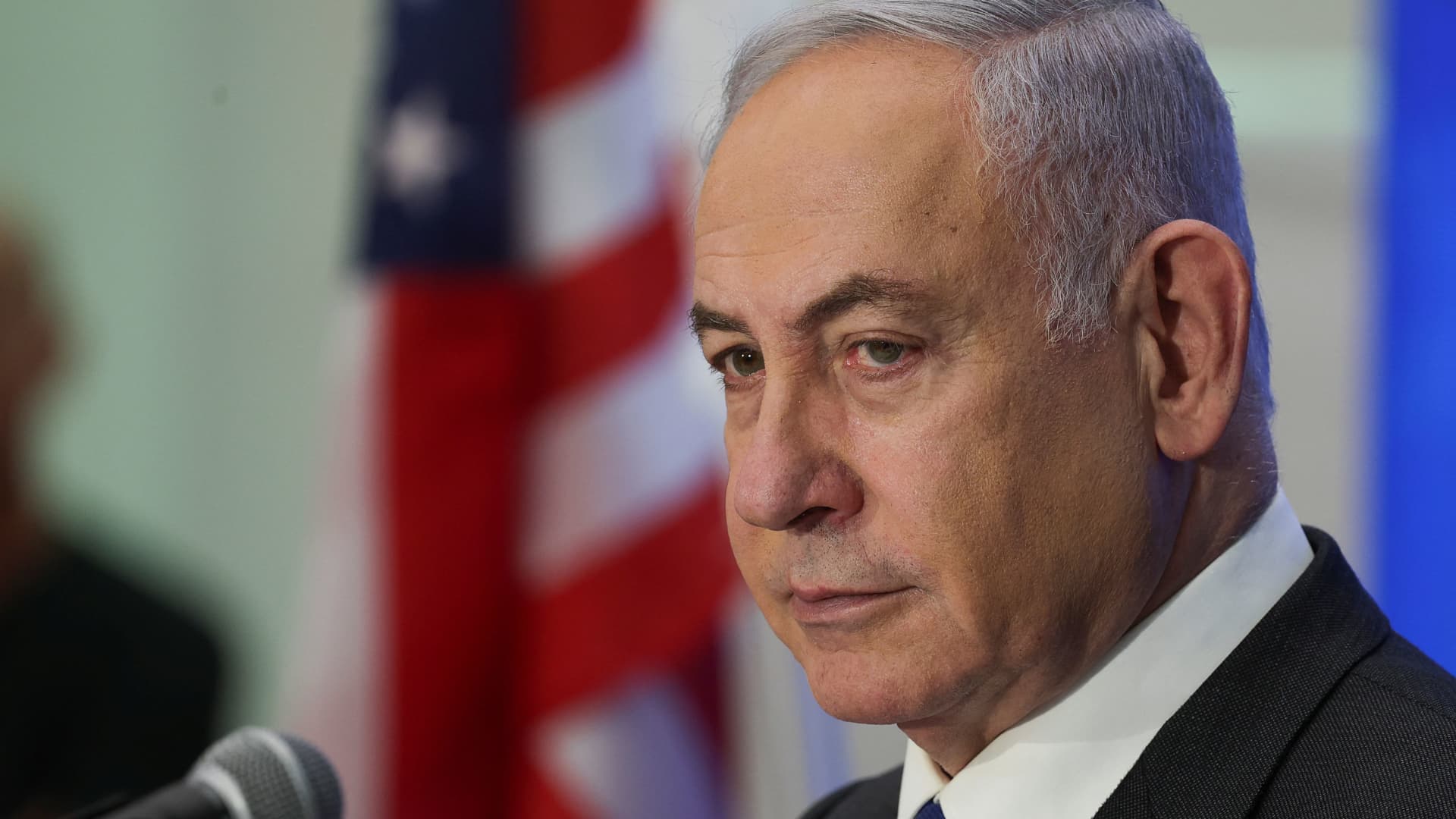U.S. crude oil falls below $82 a barrel after disappointing inflation, manufacturing data


An oil pumpjack is pictured in the Permian basin, Loco Hills regions, New Mexico, U.S., April 6, 2023.
Liz Hampton | Reuters
U.S. crude oil dropped below $82 a barrel on Tuesday as the market was hit with another round of disappointing inflation and economic data.
Traders are increasingly pricing in the risk the Federal Reserve could raise interest rates again at some point rather than maintaining them at the current level, said Phil Flynn, senior market analysts at the Price Futures Group.
Consumer confidence sagged in April to the lowest level since July 2022. Manufacturing activity in the Chicago area contracted with the purchasing managers index coming in at 37.9, the lowest level since November 2022. And compensation costs for workers rose by by 1.2% in the first quarter, which was faster than the 1% expected.
“You’ve got the stagflationary environment,” Flynn said. “The market is pricing in the Fed fears that they’re going to come out a lot more hawkish.”
Here are Tuesday’s closing energy prices:
Higher interest rates for longer would result in a stronger dollar compared to other currencies which would put pressure on oil prices, said Andy Lipow, president of Lipow Oil Associates.
Oil prices were positive earlier in the session after Israeli Prime Minister Benjamin Netanyahu dismissed hopes that a proposed hostage deal would prevent an attack on the southern Gaza city of Rafah.
The U.S. is pushing for a ceasefire to head off an Israeli offensive against Rafah. Washington fears an invasion of the city will dramatically escalate the humanitarian crisis and regional tensions. But Netanyahu threatened to move against Rafah regardless of whether a hostage deal is reached.
WTI vs. Brent
“The idea that we will halt the war before achieving all of its goals is out of the question,” Netanyahu said Tuesday at a forum of hostage families. “We will enter Rafah and we will eliminate the Hamas battalions there – with or without a deal, in order to achieve the total victory.”
Israel has proposed the release of 33 hostages held in Gaza in exchange for a ceasefire and the release of Palestinian prisoners. Senior U.S. administration officials and Arab diplomats told NBC News that Israel has indicated for the first time that it would accept a truce lasting more than six weeks.
“If that should occur, you’re seeing geopolitical risk come out of the oil market as the probability of a supply disruption out of the Middle East would fall,” Lipow said of the potential cease-fire. Oil prices fell more than 1% on Monday on hopes that a deal will ease regional tensions.
A Hamas delegation discussed the proposal with Egyptian officials in Cairo on Monday. Israel is waiting for Hamas’ response before sending its negotiators to Egypt, an Israeli official told NBC News.

